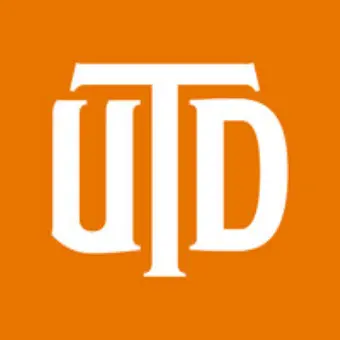Postdoctoral Research Associate

University of Texas at Dallas
This job is no longer accepting applications
See open jobs at University of Texas at Dallas .See open jobs similar to "Postdoctoral Research Associate" Tech Titans.USD 57k-60k / month
Posted on Nov 20, 2025
| Posting Number | S06736P |
|---|---|
| Position Title | Postdoctoral Research Associate |
| Functional Title | |
| Department | Mechanical Engineering |
| Salary Range | $57,000–$60,000 commensurate with experience |
| Pay Basis | Monthly |
| Position Status | Regular full-time |
| Location | Richardson |
| Position End Date (if temporary) | 01/20/2027 |
| Posting Open Date | 11/19/2025 |
| Posting Close Date | |
| Open Until Filled | Yes |
| Desired Start Date | 01/20/2026 |
| Job Summary | The Flow Dynamics and Turbulence (FDT) Laboratory, within the Department of Mechanical Engineering at the University of Texas at Dallas, invites applications for a Postdoctoral Researcher position focused on laboratory investigations of small-scale turbulence above and below surface waves under high-wind conditions. We seek a highly motivated, independent, and creative researcher with a strong background in air–sea interactions and experimental fluid mechanics, particularly in optical flow visualization techniques. The successful candidate will conduct advanced laboratory experiments to investigate the dynamics of small-scale turbulence in the coupled air–sea boundary layer and its impact on air–sea flux transfers. This will be accomplished by a combination of novel experiments based on particle image velocimetry (PIV), laser-induced fluorescence (LIF), high-speed imaging, and schlieren/shadowgraphy techniques. The resulting dataset will support the development of sea-state-dependent parameterizations of air–sea fluxes. |
| Minimum Education and Experience | Ph.D in a related field. |
| Preferred Education and Experience |
|
| Other Qualifications | To the extent this position requires the holder to research, work on, or have access to critical infrastructure as defined in Section 117.001(2) of the Texas Business and Commerce Code, the ability to maintain the security or integrity of the critical infrastructure is a minimum qualification to be hired and to continue to be employed in the position. |
| Essential Duties and Responsibilities |
|
| Physical Demands and Working Conditions | |
| Physical Activities | |
| Working Conditions | |
| Additional Information | The initial appointment will be for one year, with the possibility of renewal for up to three years, depending on performance and funding availability. A remote work schedule is not available for this position. What We Can Offer UT Dallas is an Equal Opportunity Employer with an employee-friendly and supportive work environment. Our comprehensive compensation and benefits package that is effective as of your hire date includes:
All UT Dallas employees have access to various professional development opportunities, including a membership to Academic Impressions, LinkedIn Learning, and UT Dallas Bright Leaders Program. Visit https://hr.utdallas.edu/employees/benefits/ for more information. If you are looking for a rewarding career opportunity with great benefits? Look no further! Join our team! About Us: The FDT laboratory is part of the Department of Mechanical Engineering at the University of Texas at Dallas. It is an interdisciplinary research group dedicated to understanding the nature of turbulence and examining turbulent flow processes in different natural, industrial, and engineering environments using experimental, numerical, and theoretical approaches. Particularly, our research agenda is focused on studying turbulent air-sea interaction processes, including surface waves and the accompanying generation of turbulence, spray, bubbles, airflow separation, and breaking waves. Another strand of our research is devoted to studying the turbulence structure in hurricane boundary-layer flows and examining the impacts of wind-wave interaction processes on offshore wind turbines and on-shore structures. In general, our research field is of interest to engineering, applied mathematics, and oceanography scholars. Physics learned from our work directly impacts our understanding of air-sea couplings and ocean waves, which is crucial for weather and climate forecasting and has significant societal benefits, impacting many aspects of human life. |
| Special Instructions Summary | |
| Important Message | 1) All employees serve as a representative of the University and are expected to display respect, civility, professional courtesy, consideration of others and discretion in all interactions with members of the UT Dallas community and the general public. 2) The University of Texas at Dallas is committed to providing an educational, living, and working environment that is welcoming, respectful, and inclusive of all members of the university community. UT Dallas does not discriminate on the basis of race, color, religion, sex (including pregnancy), sexual orientation, gender identity, gender expression, age, national origin, disability, genetic information, or veteran status in its services, programs, activities, employment, and education, including in admission and enrollment. The University is committed to providing access, equal opportunity, and reasonable accommodation for individuals with disabilities. To request reasonable accommodation in the employment application and interview process, contact the ADA Coordinator. For inquiries regarding nondiscrimination policies, contact the Title IX Coordinator. |
This job is no longer accepting applications
See open jobs at University of Texas at Dallas .See open jobs similar to "Postdoctoral Research Associate" Tech Titans.
